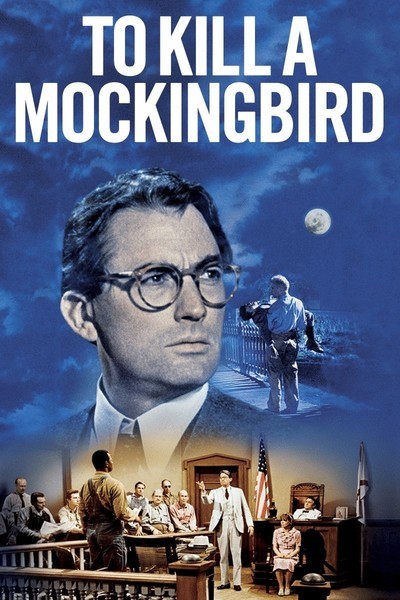Netflix Now: Review of ‘To Kill a Mockingbird’

October 4, 2015
[rating=5]
This week’s review is of “To Kill a Mockingbird”: 5 1/2 of 6 star film. This film captures the era of the 1930s and the issues of the time, with its vibrant characters and themes that are disturbingly still relevant today.
Robert Mulligan’s well done drama stars Gregory Peck as Atticus Finch, the film’s protagonist.
The film centers on Atticus in the town of Maycomb, Alabama in the depression era during the early 1930s. The audience sees Atticus take on a legal case of a black man, Tom Robinson, who is wrongly accused of a charge of rape.
The captivating thing about this movie is its primary focus–exploring racism in the 1930s. Some may say it’s a gimmick to make the movie more emotional, but it only brings out more questions in the audience about the wrongs of our nation in the depression era in this little town, a concept that is strengthened through its characters.
Other than the big courtroom case, which we will get to in a moment, the film focuses on Atticus’ children: Scout and Jim. Their simple adventures around the neighborhood are engaging while all the more humorous. On a deeper note, we get to see the world through Scout’s eyes. While very naive about the issues going on in the world, her view on life is so profound and heartfelt because of the racist society that is constantly shown in the film.
We see Scout asking her father about the case he is taking on and why he’s defending this black man throughout the film. What made these scenes so fascinating is that the racist inhabitants in Maycomb, are no better in thinking than a child like Scout. Atticus not only has to teach and protect his children from prejudice, but very well the community in Maycomb. It’s funny how some adults can be so naive even though their age is just a bigger number than Scout and Jim.
The main gripe that was prevalent throughout the film was the courtroom during Tom Robinson’s trial. The dialogue is very well done, but the reactions and emotions among the people in the courtroom seem stale. There seems to be no emotion in the audience, other than those involved in the case which is a shame considering the emotions the film is able to make us feel. Gregory Peck’s courtroom scene performance is especially memorable; Peck delivers a nine minute speech pleading for the jury’s mercy for his defendant, which is just brilliant and one of the scenes that conveys the raw reality of this era.
Robert Mulligan’s classic “To Kill a Mockingbird” is, for the most part, able to achieve what it wants to despite a few flaws here and there. But, that’s not what will be remembered when walking away from this. What you take away is Atticus’ speech, Scout’s adorable and profound presence on screen, and its exploration of racism; these facets of the movie make Robert Mulligan’s work as relevant today as it was then.
